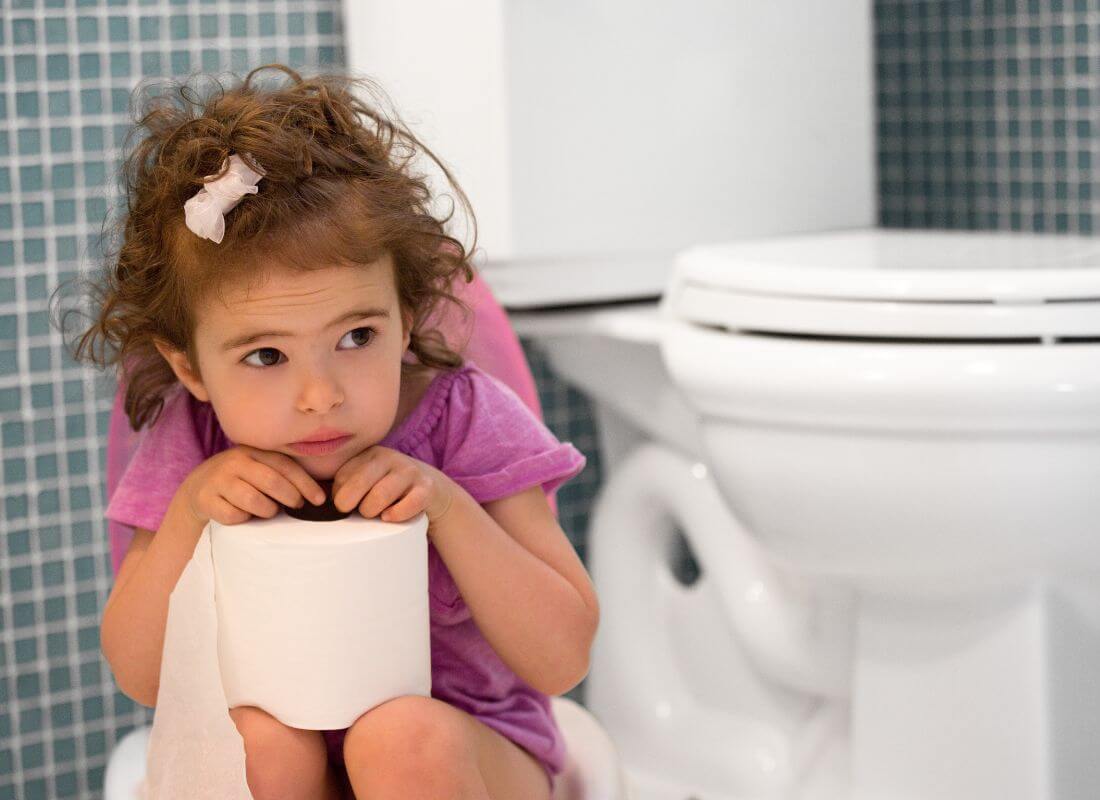
Common Potty Training Regressions & How to Handle Them
|
|
Time to read 5 min
|
|
Time to read 5 min
Potty training is a significant milestone in your child's development, but it's also one that can come with its fair share of challenges. From accidents to regressions, it's normal for both parents and children to feel a bit overwhelmed. However, with patience, consistency, and a positive approach, you can help your child navigate this important transition smoothly.
How to Handle Common Potty Training Regressions
What to Expect: Daytime accidents are a normal part of potty training, especially at the beginning.
Reassurance: Stay calm and positive. Simply say, "Oops – never mind – maybe next time," and guide your child to the potty. Clean up without fuss and have wipes, towels, and a change of clothes ready for quick changes.
Tip: To encourage a positive association, use praise and rewards like stickers when they use the potty successfully. Download your FREE Potette Reward Chart here.
What to Expect: It's common for children to resist using the potty at times.
Reassurance: Gentle encouragement without forcing is key. Praise them for trying and offer small rewards to make it a positive experience.
Tip: Modelling the process and involving them in steps can help. Show them how you use the toilet and let them participate in getting their underwear or toilet paper.
What to Expect: Many children take longer to stay dry at night, leading to occasional wetting.
Reassurance: Use protective bedding and avoid liquids close to bedtime. Reassure your child it's okay and encourage them to try again.
Tip: Gradually increase their nighttime dry periods with gentle encouragement and praise for any dry nights. For more information on nighttime training and what the differences are, please feel free to read the following blog.
What to Expect: Temporary regressions, especially during times of stress or change, are common.
Reassurance: Stay consistent with your approach and be patient. Reinforce positive potty habits without showing frustration.
Tip: Keep routines familiar and provide extra comfort and support during stressful periods.
What to Expect: Some children may be afraid of the toilet flushing or the bathroom environment in general. To them, it is a strange concept until they are used to the idea of using a toilet.
Reassurance: Let them get used to it gradually. Use books and videos about potty training and allow them to watch you use the toilet to reduce fear.
Tip: Make the bathroom a fun place with their favourite songs or bubble-blowing games to help them relax.
What to Expect: Children might not always recognise or acknowledge the urge to use the potty.
Reassurance: Gentle reminders to try using the potty, especially after meals and before bedtime, can help build the habit.
Tip: Visual cues like flashcards showing each stage of the potty process can help them understand and remember the steps. Using this type of ‘Baby Sign’ while potty training can help reduce frustration, promote interaction between the caregiver and child, and simplify the potty progress.
Working in partnership with Potty Training Expert Susan Wallace, Potette® has designed and created a set of 9 educational flash cards to support the potty training process using British Sign Language (BSL).
What to Expect: Some children might want to go back to nappies, especially if they find them more comfortable than toddler briefs.
Reassurance: Explain that using the potty is part of growing up and celebrate their progress. Offer fun underwear with their favourite characters to make them feel special.
Tip: Encourage them by praising their efforts and making potty time enjoyable and engaging. After completing your Potette Potty Training Reward Chart you can also present your potty trained toddler with their very own Potty Training Certificate to help them gain a sense of achievement.
What to Expect: Public accidents can happen and might be embarrassing for your child.
Reassurance: Reassure them that it’s okay and have a change of clothes ready. Praise them for trying and encourage them to use the potty next time.
Tip: Always carry a small bag with extra clothes, wipes, and plastic bags when out and about to handle accidents calmly and efficiently.
Be prepared for potty training on the go with the Potette Plus, winner of Gold for the Made For Mums Awards 2023. Potette is a versatile, portable potty that works as a standalone potty or trainer seat. Easy to clean, it's perfect for home or travel.
We want to support children to associate potty training as a positive experience, as it will increase their chances of success if they are motivated to do it.
Different families may have different approaches to encourage this motivation. Some families choose to use reward charts or provide small rewards such as stickers when their little one uses the potty. Others prefer to encourage internal motivation, where support and guidance are given to help the child understand the potty training process, hoping they gain internal motivation to complete the task themselves.
Supporting them with potty learning, as opposed to potty training, can be particularly useful. For example, show them the process by modelling how to use the toilet or potty, keep underwear and toilet roll accessible so they can decide when to use them, and involve them in every step of the process.
Parenting styles will determine whether you encourage motivation through rewards or prefer internal motivation - or you could try both. Although it can be helpful to motivate your child by praising their success, it can be more beneficial to praise their efforts rather than just the end result.
Potty training is a journey that requires patience, positivity, and consistent support. By understanding and gently addressing common regressions, you can help your little one associate potty training as a collaborative activity rather than a task imposed on them. All of this will help your child feel confident and motivated to succeed!



